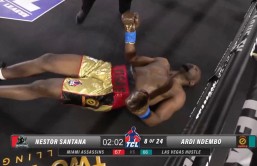It's been a hard week for daily fantasy sports sites like FanDuel and DraftKings. And after DraftKings employee Ethan Haskell published sensitive material prior to rosters locking in, then subsequently won $350,000, after ESPN pulled fantasy sports-sponsored content from its coverage, after New York state attorney Eric Schneiderman began a probe into daily fantasy sports, after a class action lawsuit was filed in a Manhattan federal court alleging that inside information, like what Haskell published, has skewed the fantasy sports world in favor of employees of these daily fantasy sites, it still isn't over.
Friday, it was announced by Daniel Wallach of Becker & Poliakoff that the U.S. Attorney's Office in Tampa, FL has begun an investigation into daily fantasy sports operators like FanDuel and DraftKings for possible violations of federal law and Florida law.
Michael McCann, a legal analyst for Sports Illustrated, explored the legality of DFS recently, ultimately comparing DFS to stock trading, making the allegations of insider trading, highlighted by Haskell, possibly even more troubling. But McCann doesn't believe what Haskell and possibly other DraftKings and FanDuel employees engage in is necessarily insider trading as defined by the law. Instead, he believes these companies could be violating anticompetitive and consumer protection laws that would draw the ire of a grand jury.
"Along those lines, it would not be surprising if the Federal Trade Commission explored whether insider knowledge in the DFS industry poses an anticompetitive, consumer-harmful practice in violation of federal trade regulations. In fairness to DraftKings and FanDuel, the companies insist that they have adopted practices to ensure the 'integrity of the games we offer.' It remains to be seen whether those practices are sufficient to prevent potential legal exposure."
DFS is considered to exist outside the scope of gambling because, as McCann puts it, it reflects "the skill and knowledge of the participants, as opposed to luck, chance or randomness, and that do not link cash prizes to the amount of fees necessary to play."
This is likely were the federal investigators will set their bulls eye.








